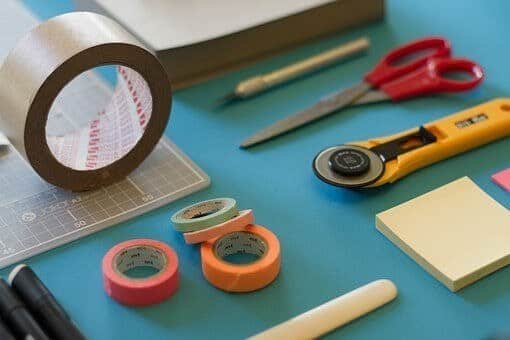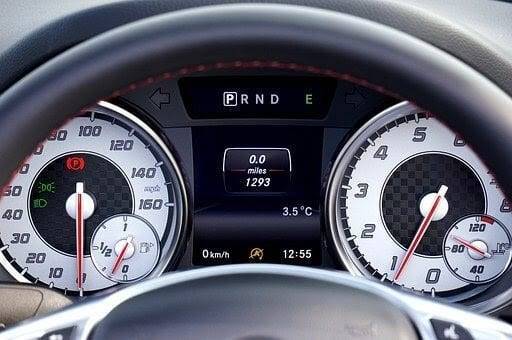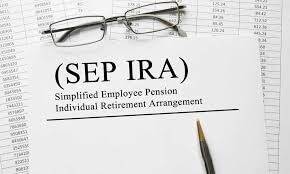
Nobody has ever said that the tax code is easy to understand.
When these taxes involve freelance work, the tax code becomes more difficult to interpret. Also, freelancing doesn’t mean you are isolated from the world and not minding your obligation to paying taxes. But instead, be a contributor to the community where you live.
Unfortunately, many freelancers do not claim any deductions when filing taxes. With more people using freelance work as their primary source of income, this is alarming.
Therefore, all freelance workers must ensure they maximize their tax deductions. If you are self-employed, you need to know about the top freelancer tax deductions to ensure you save as much of your income as possible.
Your rate will also determine the tax you need to pay as a freelancer. Knowing both your rate and your taxes proves that you’re a law-abiding freelancer and citizen of your community.
By gaining a basic understanding of how income taxes work for freelancers, what you are allowed to deduct, and what you cannot deduct will help you save a lot of time when doing your taxes. As a freelancer, always know your worth when bidding your rate. With all these deductions, make sure that you are well compensated.
It also suggested that you try the tax software for freelancers and self-employed, to widen your knowledge about the matter. Furthermore, this will also help you save money on your feet after taxes. Let’s look at the top tax deductions freelancers should know.
Regardless of whether you are looking for last-minute tax breaks for freelancers or are simply trying to plan, there are several tax deductions that freelancers should make sure they know about. These include:
The first tax deduction that all freelancers need to make sure they used is the self-employment tax deduction. With W2 jobs, this employment tax is split between the employee and the company. A self-employed or a freelancer needs to be well-versed on the deductions they are paying, most especially during tax season.
Because freelancers are self-employed, they act as both employers and employees. Therefore, they are essentially paying this tax twice. A deduction allows you to deduct the employer’s portion of your self-employment tax.
Importantly, this deduction is only going to impact your income tax. It is a good idea to work with a tax professional, such as an accountant or the team from TaxSlayer, to make sure you are claiming this deduction appropriately.
See Related: Best Apps for Freelancers

As a freelancer, you run your own business. Therefore, your business expenses are tax-deductible. If you work in an office from home, you should keep track of your office supplies during the year.
Office supplies are one of the most important deductions for freelance taxes. Some of the most common office supplies that freelancers use include:
Even smaller items, such as envelopes, can be tax deductible if used for business purposes. The IRS is rule of thumb is that office supplies are deductible as long as it is “ordinary and necessary” for your job.
Be sure to keep track of all your receipts throughout the year. Save them so you can claim all the relevant deductions for your office supplies.
See Related: Best Project Management Apps for Freelancers
Many people in this country get their health insurance through their jobs. However, freelancers, who are self-employed, must get their own health insurance.
Therefore, this is another business expense that may be tax-deductible. Whether you are purchasing your insurance on the marketplace, looking for COBRA insurance, or trying to cover the cost of health insurance in some other way, make sure that you keep track of how much you are spending on health insurance. These expenses could be tax-deductible.
If you have questions about health insurance and freelance taxes, working with an accountant is a good idea. The deduction you take on your health insurance cannot exceed your annual earned income; however, other caveats may apply to the health insurance tax deduction for self-employed individuals.
See Related: Pros and Cons of Freelance Web Development
If you have a space in your home where you work regularly, you may be able to claim a home office deduction. Importantly, this space has to be used exclusively for business. If that is the case, then you may be able to claim a home office deduction.
There are two ways that you can claim this deduction. The first option is to use the simplified method. In this case, you claim $5 per square foot of your home office.
Then, you deduct the total from your income. Another more complex method is also available. With the other method, you write off all expenses directly related to your home office. This includes maintenance on equipment, purchasing new equipment and furniture, and utilities.
Importantly, if you go overboard with your home office tax deduction, the IRS could see this as a red flag and audit you.
Therefore, it is a good idea to work with a trained tax professional, such as the team from Intuit, to ensure that you claim the home office deduction properly.
Even though you do not want to leave any money on the table, you also do not want to take a deduction for which you are not eligible.
See Related: Ways to Get Paid to Make Excel Spreadsheet

If you are self-employed, there’s a chance that you are driving a lot for your business. The good news is that you can deduct any mileage related to your business. In 2019, this deduction was 57.5 cents per mile traveled.
This amount adds up quickly. Make sure that you keep up with changes in the tax code, as this deduction could change.
If you would like to claim this deduction, it is important for you to log this mileage carefully in case the IRS starts to ask questions. You need to log your starting mileage, ending mileage, starting point, and ending point.
Furthermore, it is also a good idea to log the purpose of the trip in a simple notebook. This can be done the old-fashioned way or through a simple mobile app.
If you do not want to do all of the work to track your mileage, there is a simplified method you can use. Instead of deducting your mileage, you can deduct all of the expenses related to your vehicle. It is also possible for you to calculate how much money you will save using both methods.
Then, you can simply choose the one that works better for you. Be sure to speak with a tax professional such as an accountant from H&R Block if you have questions about claiming this deduction.
See Related: How to Register as a Freelancer

In addition to driving, if you are conducting other business-related travel, then you might be able to deduct these expenses as well.
Importantly, you need to make sure that this trip is strictly related. For example, if you are traveling to the Caribbean for a conference, this trip could also double as a vacation.
Therefore, there might be question marks when it comes to deducting the cost of airplanes, taxis, and hotel rooms. If you have any questions about this deduction, it is always a good idea to work with someone who specializes in personal taxes.
Even though there is a chance that this deduction could be substantial, it is important to save all documentation to back up this deduction. This includes not only the purpose of the trip at also receipts for airline tickets, hotel rooms, and taxis.
See Related: How to Become a Freelance Editor
Marketing is an important part of running a business. If you spend money on marketing, then you should keep track of these expenses so you can deduct them from your taxes. Some of the most common marketing expenses that you may claim include:
Every business is different so marketing expenses are going to be different for each company as well. Be sure to keep track of any advertising expenses that you pay so that you can deduct inappropriately from your freelance taxes. Rely on Tax Act for help if you have any questions.

One of the most important tax breaks for freelancers is that it is important for you to make sure that you keep track of the money that you contribute to retirement.
Many people who are self-employed are eligible for something called a simplified employee pension plan IRA, usually shortened to a SEP-IRA. It is possible that you may be able to deduct up to 25 percent of your personal income if you contribute all of this money to your IRA.
On the other hand, the amount of money you contribute to your SEP-IRA could impact the amount of money you contribute to a regular IRA or a Roth IRA.
The good news is that the brokerage company you used to manage your SEP-IRA will keep track of your expenses.
Depending on the other deductions you claim, there is a chance that this might impact the total amount of money that you can contribute to your SEP-IRA. If you go over this limit, you might have to pay a penalty.
With this in mind, it is a good idea to work closely with a financial advisor or a tax professional from Liberty Tax to ensure that you are maximizing the contributions you can make to your SEP-IRA without exceeding the limit.
If you are self-employed, you may need to pay membership dues to a professional organization. For example, if you are a lawyer, a doctor, or a financial advisor, you may need to pay dues to a professional fraternity.
These expenses are tax-deductible. While membership dues for social purposes do not count as deductions, dues paid to state boards, trade associations, or even the local Chamber of Commerce may be claimed as tax deductions.
Be sure to keep track of any dues you pay throughout the year and check with a professional accountant to see if they are deductible.
See Related: Best Time Tracking Apps for Freelancers

There are certain educational expenses that you can deduct as long as they are related to your current job.
If you are planning on switching careers, then these educational expenses are not tax-deductible; however, if you have to participate in continuing education conferences, lectures, or examinations throughout the year, there is a chance that these expenses may be tax-deductible.
Keep track of anything you must do during the year that qualifies as continuing education.
Then, work with a tax professional at the end of the year and see if you can deduct these expenses from your taxes. Continuing education expenses can be exceptionally large.
Therefore, this could be one of the top freelancer tax deductions. Ensure you understand which educational deductions are deductible with the help of trained tax professionals.

If you use your internet connection for business purposes or have a business phone, you may qualify for a deduction. Remember that you can only deduct the portion of your utilities you use for business purposes.
The easiest way to handle this on your freelance taxes is to have a separate phone for business purposes. Then, you can deduct the exact cost of that phone from your taxes. You can do the same for your internet connection as well.
If you work out of your home, you need to keep track of your internet and phone usage as it relates to your business.
That way, you can handle these tax breaks for freelancers appropriately. Nobody should pay more in taxes than they are required to by law. Keep track of these freelancer tax deductions and ensure you save as much money as possible.
Remember to work with tax professionals who can point you in the right direction when in doubt.
Last updated: July 5, 2024